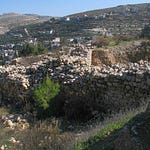There are many details and facets of commemorating the exodus from Egypt. Even a casual attendee at a passover seder will note the complexity of the service. HaRav Aharon HaLevi in his Book of [Mitzvah] Education discusses why this mitzvah has so many elements, elucidating a sacred principle underlying our entire system of mitzvot.
שמות יב (מו) בְּבַ֤יִת אֶחָד֙ יֵאָכֵ֔ל לֹא־תוֹצִ֧יא מִן־הַבַּ֛יִת מִן־הַבָּשָׂ֖ר ח֑וּצָה וְעֶ֖צֶם לֹ֥א תִשְׁבְּרוּ־בֽוֹ׃
Shemot 12 (46) It must be eaten in one house; you shall not take any of the meat out of the house to the outside, neither shall you break any of its bones.
ספר החינוך טז משרשי המצוה. לזכר נסי מצרים כמו שכתבנו באחרות. וגם זה גזע מן השרש הנזכר, שאין כבוד לבני מלכים ויועצי ארץ לגרר העצמות ולשברם ככלבים, לא יאות לעשות ככה, כי אם לעניי העם הרעבים. ועל כן בתחלת בואנו להיות סגלת כל העמים ממלכת כהנים וגוי קדוש (שם יט ו), ובכל שנה ושנה באותו הזמן, ראוי לנו לעשות מעשים המראים בנו המעלה הגדולה שעלינו בה באותה שעה. ומתוך המעשה והדמיון שאנחנו עושין, נקבע בנפשותינו הדבר לעולם. ואל תחשב בני לתפש על דברי ולומר ולמה יצוה אותנו השם יתברך לעשות כל אלה לזכרון אותו הנס, והלא בזכרון אחד יעלה הדבר במחשבתנו ולא ישכח מפי זרענו? דע, כי לא מחכמה תתפשני על זה, ומחשבת הנער ישיאך לדבר כן. ועתה בני, אם בינה שמעה זאת, והטה אזנך ושמע (משלי כב יז), אלמדך להועיל בתורה ובמצות. דע, כי האדם נפעל כפי פעלותיו, ולבו וכל מחשבתיו תמיד אחר מעשיו שהוא עוסק בהם אם טוב ואם רע, ואפילו רשע גמור בלבבו וכל יצר מחשבות לבו רק רע כל היום, אם יערה רוחו וישים השתדלותו ועסקו בהתמדה בתורה ובמצות, ואפילו שלא לשם שמים, מיד ינטה אל הטוב, ומתוך שלא לשמה בא לשמה, ובכח מעשיו ימית היצר הרע, כי אחרי הפעלות נמשכים הלבבות…ואמת שכל האדם נפעל כפי פעלותיו, כמו שאמרנו. ועל כן אמרו חכמים ז''ל (מכות כג, ב) רצה הקב''ה לזכות את ישראל לפיכך הרבה להם תורה ומצות, כדי להתפיס בהן כל מחשבותינו ולהיות בהן כל עסקינו להטיב לנו באחריתנו. כי מתוך הפעלות הטובות אנחנו נפעלים להיות טובים וזוכים לחיי עד. ורמזו ז''ל על זה (מנחות מג, ב), באמרם כל מי שיש לו מזוזה בפתחו וציצית בבגדו ותפלין בראשו, מבטח לו שלא יחטא, לפי שאלו מצות תמידיות, ונפעל בהן תמיד. לכן אתה ראה גם ראה, מה מלאכתך ועסקך, כי אחריהם תמשך ואתה לא תמשכם.
From the roots of the commandment is to remember the miracles of Egypt, as we have written in the other [related commandments]. And this is also a trunk from the root mentioned: For it is not honorable for the sons of kings and the advisers of the land to drag the bones and break them like dogs. Except for the impoverished among the people and the starving, it is not a proper thing to do this. And therefore, as we began to become the chosen of all nations, 'a kingdom of priests and a holy nation' - and in each and every year at that time - it is fitting for us to do acts that show the great stature which we achieved at that hour, about us. And in the act and reenactment that we do, this thing is placed in our souls for eternity. My son, do not think to pounce upon my words and say, "Why would God, may He be blessed, command us to do all of these commandments to commemorate that miracle; would we not remember it with one commemoration, [such that] it not be forgotten from the mouth of our offspring?" You must know that it is not from wisdom that you would [question] me about this, and it is your youthful thoughts that lead you to this. And now, my son, 'If you have understanding,' 'incline your ear and hear,' and I will teach you to benefit from Torah and the commandments: You must know, that a man is acted upon according to his actions; and his heart and all his thoughts always follow after the actions that he does - whether good or bad. And even he who in his heart is a complete sinner and all the desires of his heart are only for evil; if his spirit shall be enlightened and he will put his efforts and actions to persist in Torah and commandments - even if not for the sake of Heaven - he shall immediately incline towards the good. And from that which is not for its own sake comes that which is for its own sake [as opposed to being for personal gain]; for the hearts are drawn after the actions…For it is known and true that every man is acted upon according to his actions, as we have said. And the Sages, may their memory be blessed, said about this (Makkot 23b), "God wanted to grant merits to Israel, therefore he gave them many laws and commandments," to occupy all of our thoughts and all our deeds, to benefit us at our end [i.e. in the world to come]. Because from the good actions we are acted upon to be good and merit eternal life. And the Sages hinted at this (Menachot 43b) with their statement that anyone who has a mezuzah on his door, tsitsit on his garment and tefillin on his head is promised that he shall not sin - for these are constant commandments, and [so] he is constantly acted upon by them. Therefore, surely observe what [you choose] to be your craft and your dealings, since you will be pulled by them and you will not pull them…
The Sefer HaChinuch articulates what he says is a foundational principle about the benefit of observing Torah. Why do we have so many different mitzvot related to remembering the exodus from Egypt? Because each provides an opportunity. If our goal was simply to casually remember a particular event, so indeed a single token observance would be sufficient. But if we understand that the true value of mitzvot is that they ennoble and elevate us, that “our actions [over time] influence our character”, then we also see that every mitzvah offers another way to bring the fundamental ideas of the exodus into our lives. He quotes the following Mishna:
משנה – מכות פרק ג (טז) רַבִּי חֲנַנְיָא בֶּן עֲקַשְׁיָא אוֹמֵר, רָצָה הַקָּדוֹשׁ בָּרוּךְ הוּא לְזַכּוֹת אֶת יִשְׂרָאֵל, לְפִיכָךְ הִרְבָּה לָהֶם תּוֹרָה וּמִצְוֹת, שֶׁנֶּאֱמַר: יְיָ חָפֵץ לְמַעַן צִדְקוֹ יַגְדִּיל תּוֹרָה וְיַאְדִּיר (ישעיהו מ״ב:כ״א).
Mishna Makkot 3:16 Rabbi Ḥananya ben Akashya says: The Holy One, Blessed be He, sought to confer merit upon the Jewish people; therefore, He increased for them Torah and mitzvot, as it is stated: “It pleased the Lord for the sake of His righteousness to make the Torah great and glorious” (Isaiah 42:21).
פירוש המשנה לרמב"ם מסכת מכות פרק ג
רבי חנניא בן עקשיא אומר רצה הקב״ה לזכות את ישראל כו׳: מעקרי האמונה בתורה כי כשיקיים אדם מצוה מתרי״ג מצות כראוי וכהוגן ולא ישתף עמה כוונה מכוונת העולם בשום פנים אלא שיעשה אותה לשמה מאהבה כמו שבארתי לך הנה זכה בה לחיי העולם הבא ועל זה אמר רבי חנניא כי המצות בהיותם הרבה אי אפשר שלא יעשה אדם בחייו אחת מהם על מתכונתה ושלמותה ובעשותו אותה המצוה תחיה נפשו באותו מעשה וממה שיורה על העקר הזה מה ששאל ר׳ חנניא בן תרדיון מה אני לחיי עוה״ב והשיבו המשיב כלום בא מעשה לידך כלומר נזדמן לך לעשות מצוה כהוגן השיבו כי נזדמנה לו מצות צדקה על דרך שלמות ככל מה שאפשר וזכה לחיי העוה״ב ופירוש הפסוק (ישעי׳ מ״ב) ה׳ חפץ למען צדקו לצדק את ישראל למען כי יגדיל תורה ויאדיר:
Rambam’s Commentary on the Mishna - Makkot 3:16
Among the foundational principles of our faith in the Torah is that when a person fulfills a mitzvah from the 613 mitzvot properly and appropriately, and does not intermingle with it some extraneous worldly intention in any manner, but rather he does the mitzvah for its own sake out of love, as I have explained to you, behold he will merit through it life in the world to come. And this is what Rebbe Chananiah said, for given the abundance of mitzvot, it is impossible that a person will not do one of them properly and completely, and through doing that mitzvah, and he will give life to his soul through that action. And based on this foundational principle, Rebbe Chananiah ben Tradyon asked, what is my status with regard to the world to come? He was answered, “have no opportunities presented themselves to you?”, meaning have you been able to complete one mitzvah properly? He answered them that he had the opportunity to perform the mitzvah of charity in the most complete manner possible, and had thus merited life in the world to come. And this is the explanation of the verse, “Hashem desires for the sake of His righteousness” to make the Jewish people righteous, in order that “the Torah be elevated and strengthened” (Isaiah 42:21). -my translation
The Rambam does not emphasize the variety of mitzvot with regard to the quantity one might perform during his or her lifetime. Rather, he emphasizes the variety in terms of the quantity of opportunity they provide. He goes so far as to suggest that it is basically impossible that a person won’t be able to execute at least one mitzvah in its full and ideal form over the course of his or her lifetime. We may not give charity properly and with a full heart every time. But hopefully at least once in our lives, we truly connect with one of the valuable activities highlighted in the Torah, engage in it completely and for all the right reasons. Even one such experience can transform us.
References
Rosenberg, A. (1980). A new English translation of the Hebrew Bible text and Rashi, with a commentary digest. New York: Judaica Press. Retrieved from: https://www.chabad.org/library/bible_cdo/
Sefer HaChinukh, translated by Nataf, Francis (2018). Sefaria. Retrieved from:
https://www.sefaria.org/Sefer_HaChinukh.16.2?lang=bi
Translation of the Talmud from The William Davidson digital edition of the Koren Noé Talmud, with commentary by Rabbi Adin Steinsaltz Even-Israel (CC-BY-NC 4.0), digitized by Sefaria. Retrieved from: https://mishna.alhatorah.org/Full/Makkot/3.15#e0n6















Share this post